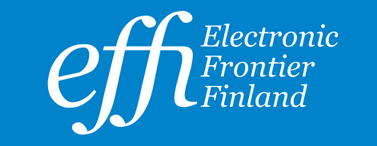The ACTA-negotiations are about to continue, this time in Mexico.
The treaty process has been largely neglected by the Finnish media. The same is also true for the political system. The treaty proposal is right now being circulated in the Finnish parliament but very little is actually being done – on the contrary. Out of the five committees, four have already decided that they don’t organize hearings at all. The only hope left is the Transport and Communications Committee, which is chaired by Martti Korhonen (Left Alliance) who is one of the best persons for the task. (It’s kind of sad that Heidi Hautala of the Green Party is back in Brussels, because she’s actually been active on the issue already and would have been a very effective player in this game…)
From the Finnish perspective the ACTA-treaty is unlikely to bring many actual changes. Our IPR legislation is one the harshest already. For example, the court can here decide that mere one suspicion is enough to get a person disconnected from Internet. Also, *all* IPR-violations of commercial scale are also crimes, maximum penalty being two years of prison. However, Finland has currently (at least in theory) the best protection for Internet service providers against 3rd party liability in EU. In case of the copyright violations, there is no actual knowledge, i.e., a formal take-down notice or actual court decision is always required.
Unfortunately, this does not mean that the treaty is harmless for us. The worst thing about this kind of international treaties is that they lock the legislation against all kind of changes, i.e., if EU finally one day sees the light and decides that it would make sense to soften the copyright acquis, that is no longer possible because ACTA (and certain other trade agreements, which are being negotiated right now) would prevent it.
This is of course one of the key reasons why this treaty is being pushed so strongly right now. The Digital Commons -movement has gained steadily real political strength and the supporters of maximalist IPRs realize that their hay days of unlimited political clout are about the be over so now it’s time to dig in as deep as possible.
So, what should be done (and can be done) to the situation? For the start, we should at least keep pushing the political system to make the negotiations fully open. It’s very peculiar that no country is publicly opposing opening up the negotiations but still giving the information would somehow hurt trade relations. In practice there will be enough leaks so that it is possible to get a relatively good picture what’s going on – but this is not how it should work in the democratic process.
However, the real goal should be forcing the whole process to stop! There is absolutely no need for this kind new international instrument. WTO and WIPO exist for this kind of global regulation and they should be the forum for these negotiations. So please write your member of parliament today – we need their attention now.
